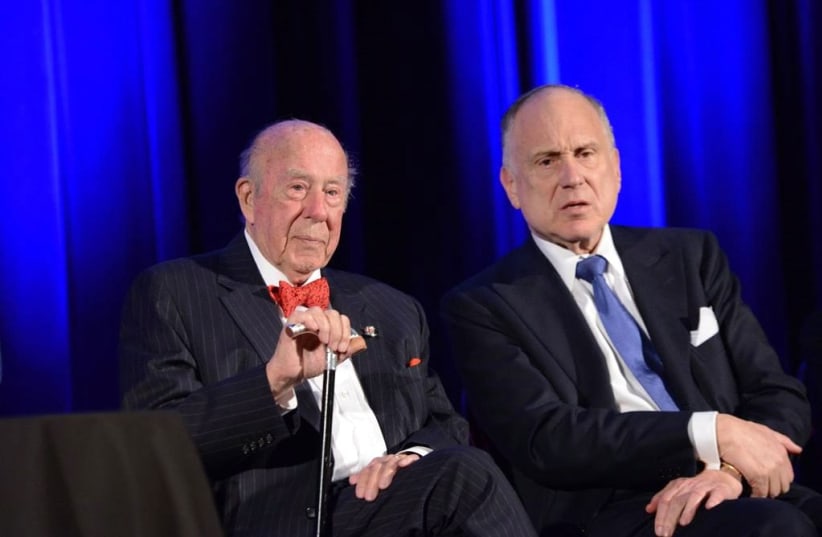In the late winter of 1986, I was ushered into the massive office of the Secretary of State, to receive final instructions before my new posting as U.S. Ambassador to Austria. As expected, George P. Shultz, my new boss, did what he did with every new ambassador. He walked me over to a large globe near his desk and asked me to point out the country I would be representing. I had heard this story before and was prepared for the trick question. One’s first inclination might have been to point to the country you were going to, in my case, Austria. But, of course, that wasn’t the question. The country I would be representing was my country – the United States of America.
Now, all these years later, I have a greater understanding of the question and the man who asked it. George P. Shultz was the quintessential 20th century American – born in New York, educated at the top schools, Princeton and MIT, a Marine captain on Peleliu during World War II, brilliant academic at the University of Chicago, CEO of Bechtell and, most important for all of us, government servant. It’s that last honorific on his long, impressive resume that stands out because Secretary Shultz always saw this function as service, giving something back to a country he loved deeply.
As fate would have it, I was only in Vienna a few months before I found myself in a tangled diplomatic challenge – the Waldheim Affair. For anyone under the age of 50, Kurt Waldheim was the disgraced Secretary General of the United Nations, who lied about his involvement in the Nazi military during World War II. Many Austrians were upset that any of this had even been raised, and some blamed “Jewish owned newspapers” in the United States for creating the problem. The country, as a whole, showed the world what it thought of the matter by electing Waldheim as its president.
The role of President of Austria is really just a figurehead position, but as the U.S. Ambassador, I was expected to attend Waldheim’s inauguration. I didn’t think I should and I expressed my reasons to the State Department. This did not go over well and my request was batted back-and-forth until it went all the way up to the office of the Secretary. There it stopped. George Shultz understood that the absence of the U.S. Ambassador would be sending a strong message to the Austrians. It came at a particularly difficult moment in the Cold War when we also needed Austrian compliance on a number of crucial matters with the Soviets. Perhaps because of that, or because George Shultz was a veteran of World War II and personally understood the gravity of that conflict, he sided with me on the matter. I would not attend. The U.S. seat would remain empty at this event.
Five years ago, I had the opportunity to spend time with my former boss when he came to New York with his wife, to accept an award from the World Jewish Congress for his strong and consistent support for Israel and the Jewish people. I asked him how he came to that decision. His answer was classic Shultz … he cut right to the bone without mincing words. “Because I thought you were right.” Mr. Shultz replied. Nothing more needed to be said.
That we were able to have this man for 100 very active years was a blessing. Yes, he received so much from this country, but he gave back so much more. George Shultz, along with Ronald Reagan, helped pave the way for the end of the Soviet Union, they were architects of renewed American strength and his economic policies brought the U.S. through challenging periods. He never stopped working after he left Washington. He was still writing important OpEds on weighty matters and continued his work at Stanford, writing books, speaking and holding seminars right until the end.
The United States of America has been a truly blessed nation in so many ways through its abundant natural resources, its beauty and, most of all, the freedoms that its founders carved into the constitution. It has also been blessed with brilliant public servants who put their country before themselves, always.
That was the quintessential George Pratt Shultz, the brilliant economist, statesman and public servant, who always put his country first.
